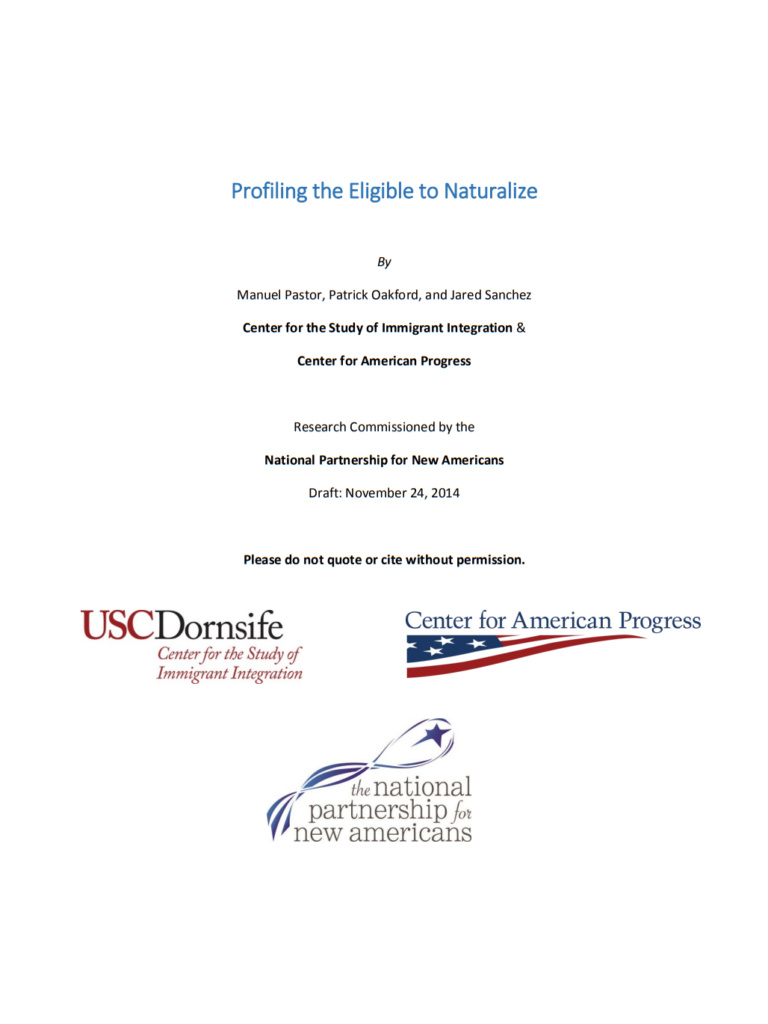
January 2015
By Manuel Pastor, Patrick Oakford, and Jared Sanchez
USC Center for the Study of Immigrant Integration (CSII) & Center for American Progress (CAP)
Research Commissioned by the National Partnership for New Americans
Please note: reports dated earlier than June 2020 were published under our previous names: the USC Program for Environmental and Regional Equity (PERE) or the USC Center for the Study of Immigrant Integration (CSII).
Recent research has suggested that the high fees to naturalize may serve as an impediment to Legal Permanent Residents (LPRs) seeking citizenship (Pastor et al. 2013). That research has been based on observing responses over time to increases in the fee (particularly to the differential between the costs to naturalize and the costs to renew a “green card”) and seeing how that affects both the level and composition of those choosing to naturalize in any given year. In general, those results square with the notion of price sensitivity: the share of LPRs with less education (and likely less income) tends to fall dramatically when the fees go up as does the share of Mexican-origin LPRs choosing to make the transition to citizenship.
To understand what fee changes might mean going forward, it would be useful to have a more detailed profile of those eligible to naturalize, including by income, education and English language ability. Unfortunately, this information is not readily available in the data maintained by the Office of Immigration Statistics which essentially relies on broad flows to calculate the number of Legal permanent residents and the share of those eligible to naturalize. This memo seeks to address that gap by attempting to simulate the LPR population with data in the 2012 American Community Survey (ACS) that can offer a more detailed picture.



